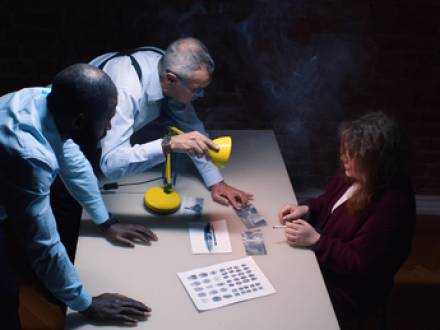Careful – The Police Can Lie to You During an Investigation!
 While it may seem difficult to believe, the police can—and will—lie to you during a criminal investigation. In fact, police officers are trained in these tactics to lead you into making an incriminating statement. From attempting to persuade you that confessing is in your best interests to working hard to convince you that your behavior is unlikely to result in charges, blatant untruths are extremely common during an investigation.
While it may seem difficult to believe, the police can—and will—lie to you during a criminal investigation. In fact, police officers are trained in these tactics to lead you into making an incriminating statement. From attempting to persuade you that confessing is in your best interests to working hard to convince you that your behavior is unlikely to result in charges, blatant untruths are extremely common during an investigation.
Understanding this is critical so you do not inadvertently say something that will make charges more likely or more serious. Before you meet with a police officer, a police investigator, or a state prosecutor, it is extremely important that you speak to an experienced Cooke County, TX criminal defense lawyer.
Is Police Deception Allowed Under the Law?
Court rulings, including Frazier v. Cupp (1969), have upheld the practice of allowing police to lie to suspects during investigations and interrogations. In this particular case, the court ruled that no constitutional provisions are violated when police officers use deception to elicit a confession (Code of Criminal Procedure 38.22) or trick a suspect into giving the police details about a specific crime. There are very few rules regarding the ability of the police to lie to suspects.
Police are not supposed to coerce an innocent person to confess to a crime he or she did not commit – although there are plenty of instances where that very thing happens. The police cannot psychologically bully a suspect into making a statement by using outright threats or false assurances and are not allowed to blatantly misrepresent a suspect’s legal rights. All of that being said, police can and do "walk the line" when investigating crimes.
How Do Police Typically Lie to Suspects?
There are many different ways a police officer can either tell an outright lie or simply hint that something is true that is not. A police officer could tell a suspect that a witness at the scene of the crime identified the suspect or that his or her fingerprints were found at the scene of the crime. Implying leniency is a way many police officers lie to suspects by "suggesting" that a confession will result in a more lenient sentence – or will allow the suspect to go home.
Only prosecutors can make deals, so any deal offered by a police officer is nothing more than a ploy to obtain a confession. A police officer may downplay the seriousness of the situation, telling a suspect that he or she is simply "a person of interest" or a witness while gathering evidence against the suspect. False confessions are relatively common simply because a person unused to the criminal justice system might believe it when an officer says if he or she will just confess, the ordeal will be over.
In particular, younger suspects, those unfamiliar with their rights, and those with cognitive impairments are especially prone to making false confessions under pressure. Tricking a suspect into a confession may take the form of overstating the penalties of a conviction for the criminal offense being investigated. Police officers may also present the suspect with several possible scenarios of the crime to get him or her to confess to one of those scenarios.
While police officers are no longer allowed to physically assault suspects, they do use interrogation tactics that are meant to create a sense of isolation and fear. Being deceived by the police can leave lasting scars, including a sense of betrayal, anxiety, fear, and anger. When police deception crosses the line into violating the suspect’s rights, a knowledgeable criminal defense attorney can use that to potentially have the charges dropped or lowered.
Contact a Denton County, TX Criminal Defense Attorney
If you have been asked to come in to speak to the police or you have been arrested and placed in an interrogation room, you need to immediately ask for a Cooke County, TX criminal defense lawyer. After doing so, refuse to answer any questions until your attorney arrives. Call 940-382-1976 to schedule your free consultation. Se Habla Espanol.





